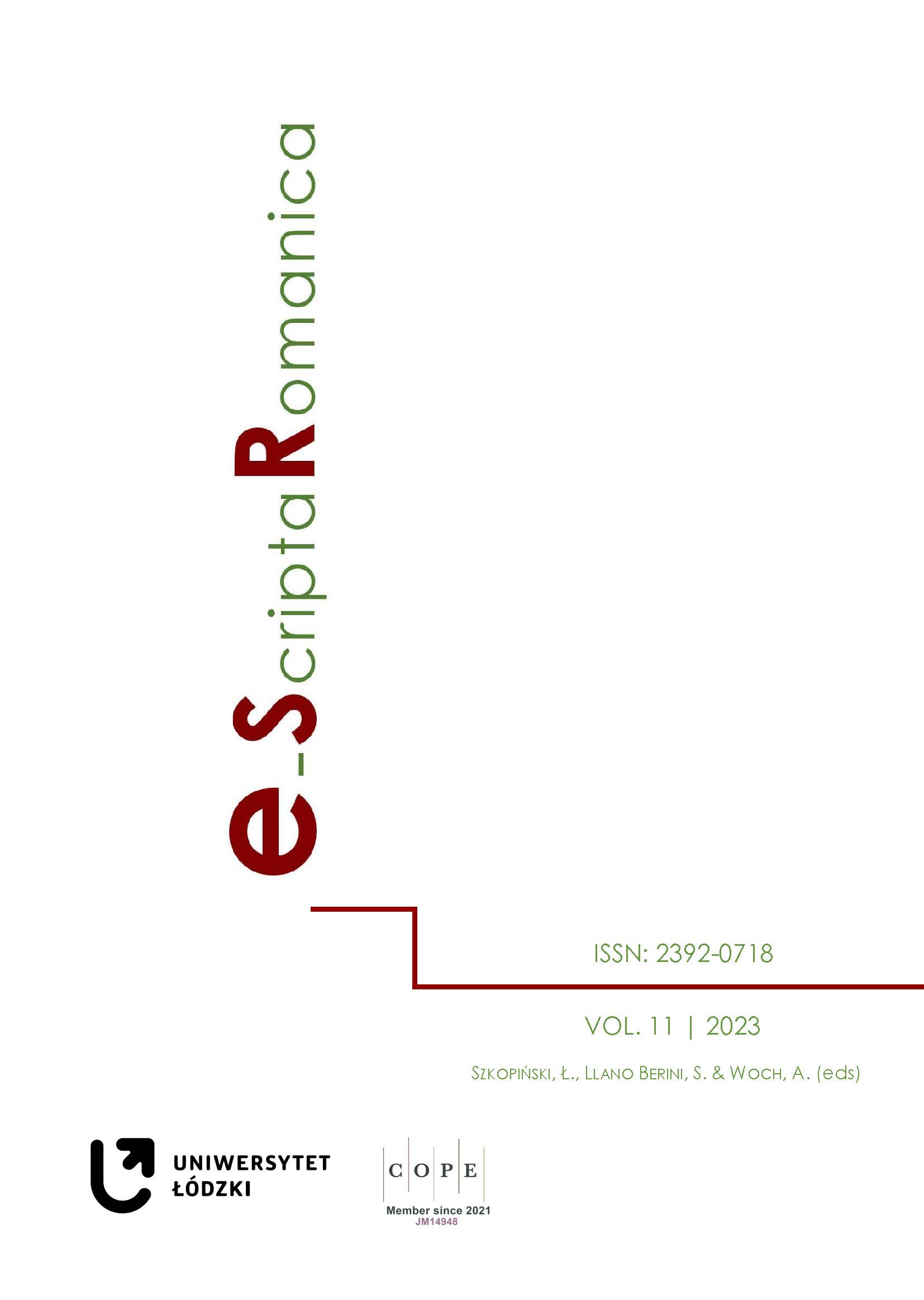The night: making and staging fantasies in Fernand Crommelynck’s "Le Cocu magnifique"
DOI:
https://doi.org/10.18778/2392-0718.11.05Keywords:
buffoon, desire, fantasy, dream, tragicAbstract
In Crommelynck's Le Cocu magnifique, the night is not merely an external detail as for many pieces whose most important actions are set in a nocturnal setting. Paradoxically, this work, which takes place mainly in daytime settings, gives the night an unexpected importance. We must therefore question the dramatic and aesthetic stakes of this omnipresence. The carnival festival of Saint-Géraud and the strange serenade given by Bruno in disguise to his wife Stella arouse both laughter and concern. But above all, the night invests the speech of the characters and inspires their actions. In addition, sleep, dreams, desire, fantasies, everything relates to the night. In addition, sleep and dreams are the subject of divergent interpretations by the characters. The question of absence and desire, feeding their fantasies, is at the heart of the relationships between the characters. As for Bruno, he feeds his jealousy by his exaltation of Stella's body, by poetry and by the imagination in which he delights to the point of sinking into madness: the night darkens the love relationship to the point of making the two protagonists pass from heaven to hell into a buffoon nightmare.
References
ASTIER, I. (2013). Éros. In MONTANDON, A., Dictionnaire littéraire de la nuit. Paris : Champion, pp. 447-462.
Google Scholar
BENOIT, C. (2013). Étoile. In MONTANDON, A., Dictionnaire littéraire de la nuit. Paris : Champion, pp. 463-476.
Google Scholar
CROMMELYNCK, F. (1996). Le Cocu magnifique. Bruxelles : Labor.
Google Scholar
DUVIGNAUD, J. (1996). Préface. In CROMMELYNCK, F., Le Cocu magnifique. Bruxelles : Labor, pp. 7-11.
Google Scholar
EMOND, P. (1996). Le théâtre selon Crommelynck : forces de la dramatisation et pouvoirs de l’équivoque. In CROMMELYNCK, F., Le Cocu magnifique. Bruxelles : Labor, pp. 119-148.
Google Scholar
MONTANDON, A. (2013). Dictionnaire littéraire de la nuit. Paris : Champion.
Google Scholar
MOULIN, J. (1978). Fernand Crommelynck ou le théâtre du paroxysme. Bruxelles : Palais des Académies.
Google Scholar
MUSSET, A. DE (1863). Premières poésies. Paris : Charpentier.
Google Scholar
RENIER, V. (1985). Es-tu moi ? La question du Cocu magnifique. In OTTEN, M. (éd.), Écritures de l’imaginaire. Dix études sur neuf écrivains belges. Bruxelles : Labor, pp. 69-78.
Google Scholar
WOLKENSTEIN, J. (2006). Les Récits de rêve dans la fiction. Paris : Klincsieck.
Google Scholar
Downloads
Published
How to Cite
Issue
Section
License

This work is licensed under a Creative Commons Attribution-NonCommercial-NoDerivatives 4.0 International License.











